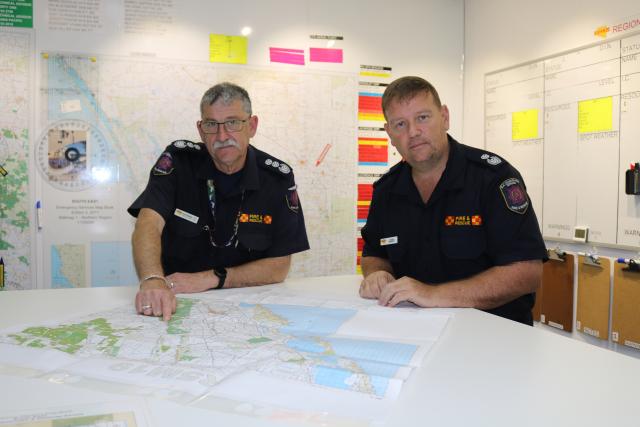
Elsie Adamo
AN “UNUSUAL” bushfire season came to a close last weekend.
Despite the season, which runs from November to April, recording a lower number of total fire bans days than previous seasons, the Country Fire Service (CFS) remained busy and CFS regional commander of Region 5 John Probert said the fire conditions this season have been unusual.
“When we had a look at the numbers, we probably have had fewer fire ban days than we normally would have over the year, but we have had lots of fires,” Mr Probert said.
“Some of those fires have been quite dangerous running under moderate, high to very high fire danger conditions which is not normal.
“Normally bad fires occur on total fire ban days with severe, extreme or catastrophic ratings and that was not the case.”
Mr Probert said the conditions meant the CFS had to remain vigilant through the entire season.
“I think it was a reminder for people to be aware that bushfires don’t just occur on total fire ban days but can occur on a hot windy day, which does not make the conditions that we would call a total fire ban,” he said.
It was a “very busy” season according to Mr Probert, with significant fires occurring at Glenburnie, Coles, Wrattonbully and Crater Lakes.
During the season, the aviation team alone responded to 50 different fires, dropping nearly 900,000 litres of water.
“Obviously the work that has been done by our volunteers particularly, our staff and our aviation people this year is incredibly important,” Mr Probert said.
“Our volunteers give up their time at some risk to themselves as seen during the Coles fire when we lost a volunteer under tragic circumstance.”
In February, CFS volunteer Louise Hincks, 44, lost her life in a falling tree incident at the Coles fire.
She had travelled to the region from Happy Valley outside of Adelaide to help contain the blaze.
“They [volunteers] put themselves at risk in a dangerous position to protect our community,” Mr Probert said.
Mr Probert said that prevention and bushfire mitigation is a total community effort, and now is the time to start thinking about the next fire season.
“We saw during the Glenburnie fire, which was running pretty hard, that numbers of properties were saved not just through the great work of fire trucks and volunteer…but by the general public who have done some pretty good prevention work prior to the onset of the fire,” he said.
“We could clearly see that the work that had been undertaken by those community members had played a big part in saving their houses.
“The wintertime is when people need to be doing their cleaning up; it is too late to start cleaning up during the fire season.”







